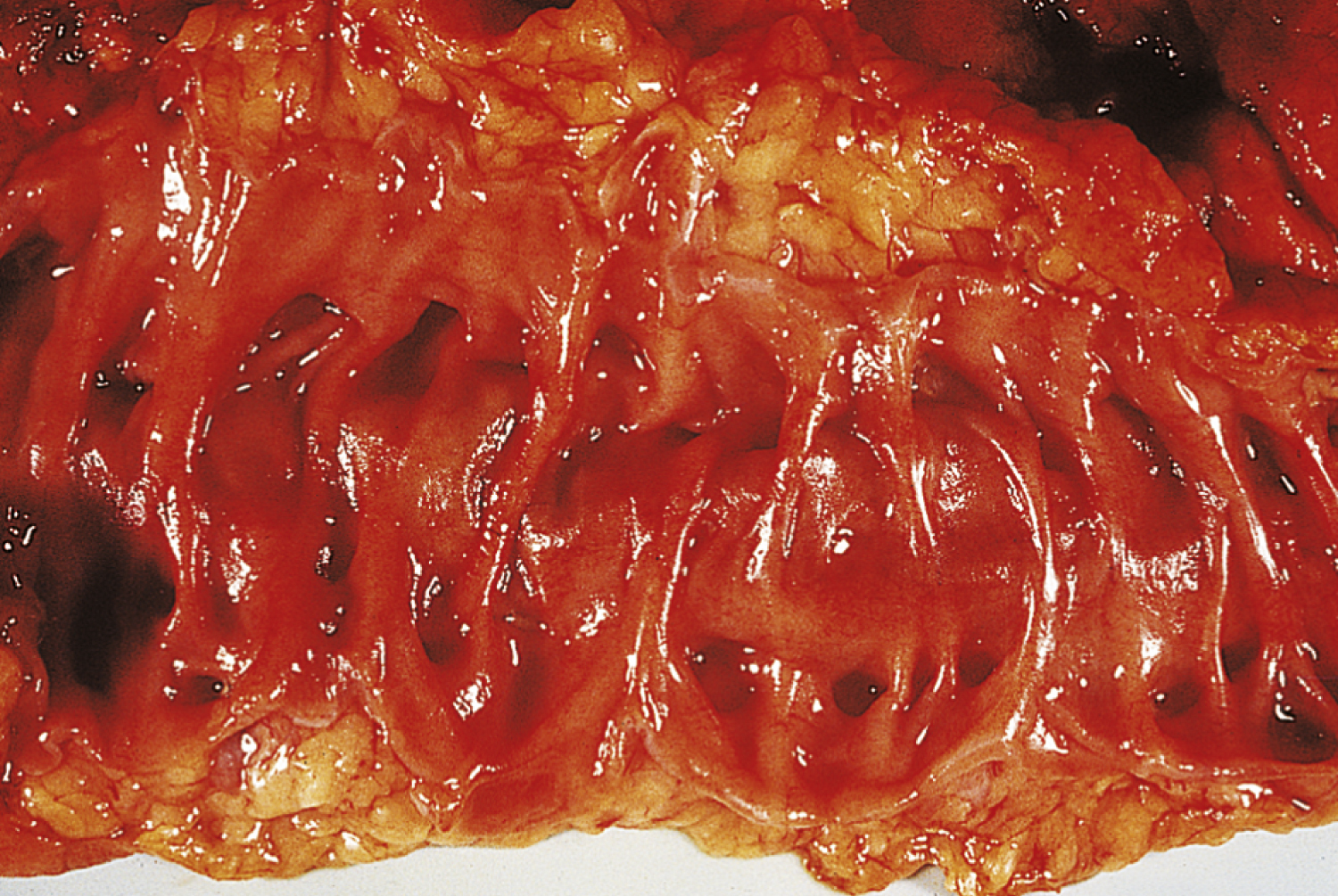diverticulosis /dī′vurtik′yo͝olō″sis/ [L, diverticulare, to turn aside; Gk, osis, condition] , the presence of pouchlike herniations through the muscular layer of the colon, particularly the sigmoid colon. Diverticulosis affects increasing numbers of people over 50 years of age and may be the result of the modern highly refined low-residue diet. Most patients with this condition have few symptoms except occasional bleeding from the rectum. Other reasons for bleeding, such as hemorrhoids, carcinoma, and inflammatory bowel disease, must be ruled out. Barium enemas and proctoscopic examination are used in establishing diagnosis. An increase in dietary fiber intake can aid in propelling the feces through the colon. Avoidance of foods with seeds and nuts decreases the risk of fecal material lodging in the diverticula. Hemorrhage from bleeding diverticula can become quite severe, and the patient may require surgery. Diverticulosis may lead to diverticulitis. See also diverticulitis.

